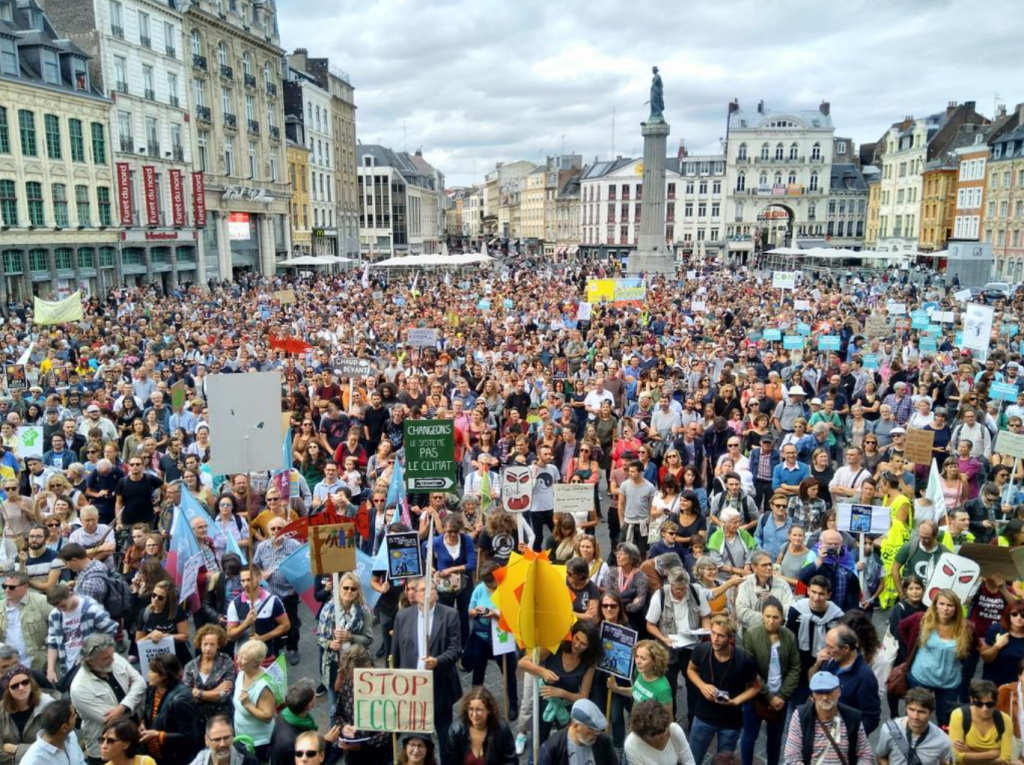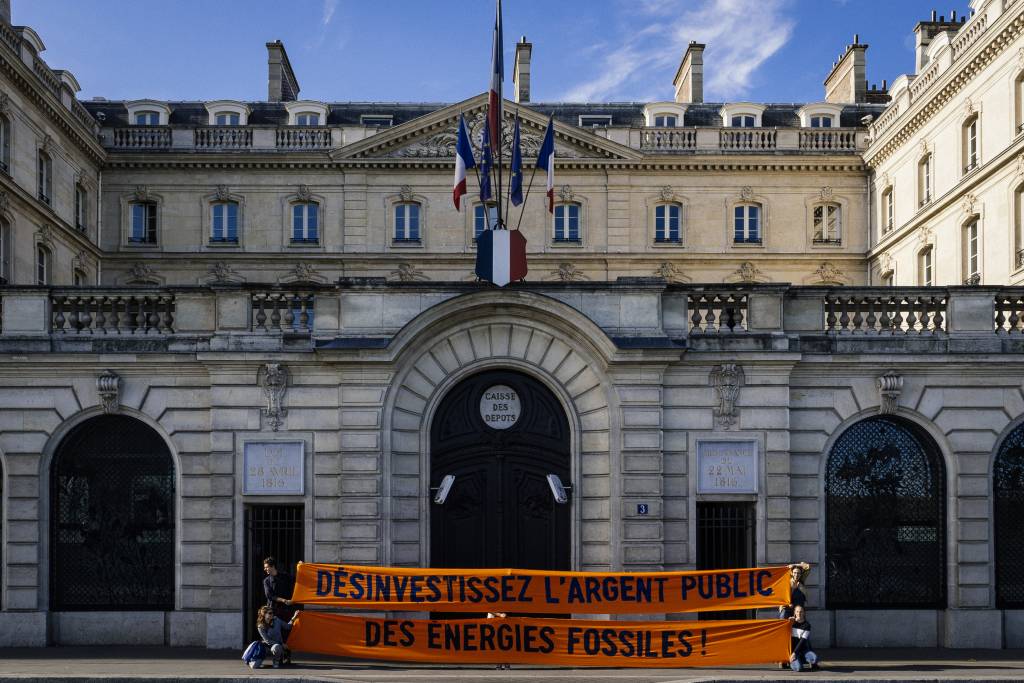It started in 2012, with a handful of small groups coming together over their outrage for the state of the planet, and a determination to set things right. They knew that a fresh approach to take on the fossil fuel industry’s stranglehold on the climate was needed.
So they gave new life to a tactic with a track record of shifting the status quo. Just as divestment helped to end apartheid in South Africa, the “climate divestment” movement would force people in high places to wake up to reality.
And now, as UN delegates are meeting in Katowice, Poland for the 24th UN Climate Talks (COP 24), that young movement is blowing past a major milestone.
Today we celebrate over 1,000 divestment commitments – more than 1,000 moves by institutions to take their money out of the fossil fuel industry, precisely because that industry caused and is actively worsening the climate crisis.
“While diplomats at the UN climate talks are having a hard time making progress, our movement has changed how society perceives the role of fossil fuel corporations and is actively keeping fossil fuels in the ground.” May Boeve, 350.org Executive Director.
When number 1000 came in just before COP24, with France’s national pension fund (CDC) dropping coal investment – it was a powerful symbol of how far the movement has come. Back in 2013, the movement’s 181 divestment commitments totaled just $50 billion. Today we see institutions as big as the nation of Ireland and New York City, one of the major financial hubs of the world, disavowing fossil fuels, and a recent report shows exponential growth.
How did we get here?
One year ago, in December 2017, on a freezing morning in front of the Pantheon in Paris, people came together – many of them for the first time. United around the phrase “pas un euro de plus” (Not a Penny More), they showed up at day’s first light for something they believe in: that the French state, and for that matter all governments and banks worldwide, have a moral duty to turn away from fossil fuels, and stand on the right side of history.
A report had been published and petition circulated citing the CDC’s investment in 12 dirty fossil fuel projects. For many, it was the first time they’d connected the dots and accepted that public investment in fossil fuels is an unacceptable form of support for the industry. The publicity shocked the government, and pushed them to reconsider.
But they didn’t. So 2018 saw a groundswell of local initiatives across France. In creative actions on the streets, people continued to criticize the government for their lasting support for the industry. In many cases after all, it was their own retirement money being invested in coal, oil, and gas. In cities, local groups began to form and present motions for the national CDC to divest. And on two separate occasions in September and October, well over 120,000 people marched for the climate across the country.

In Lille, in the north of France, thousands gathered on 8 September to Rise for Climate. Big marches also took place on 13 October and 8 December.
And now, thanks to a growing campaign that’s not slowing down, a first step to success has been made. The CDC might not have dropped all fossil fuels (oil and gas are still in their holdings), but the campaign continues to increase the pressure. With coal out of the picture, it’s setting its sights on getting all fossil fuels dropped.
The impacts of the CDC’s divestment move beyond France. One of the coal companies that’s effectively blacklisted by their divestment policy is RWE, who’s been responsible for funding dirty mines like 17 kilometer-wide Hambach mine in neighboring Germany. RWE has now lost a source of funding for their core business, coal, becausetheir core business is coal. And a major national institution that was tacitly supporting a dangerous industry – like so many others – has now changed course thanks to people power.

People outside the CDC in Paris send the message to “Divest public money from fossil fuels.”
This is a story we have seen repeated across the globe. 1,000 commitments is no accident. It’s the result of an awakening of thousands upon thousands of people around the world, like these people in France. People who are scared, concerned for and in many cases already suffering climate change. But they’re brave too.
Our 1,000 commitments are powerful not just because they show an exponentially large shift away from fossil fuels, but because there are real people behind them pushing the issue. Ordinary people are coming together and learning to protest, to lobby, to make connections, to take big risks and to build networks. Anyone can get involved locally in a campaign to shift their own pension fund, faith group, university, city council, or another institution – and in taking this local action, they’re also joining a global movement pushing for change.
What’s next?
There’s always more work to be done in the climate movement. Just as the French movement needs to keep pressure on the CDC for full divestment on oil and gas, the broader Fossil Free movement is looking to scale up and add new tactics – secure 1,000 more commitments in a fraction of the time; but also push mass fossil free phaseouts in countries around the world and advocate for those divested funds to be invested into renewable energy projects that foster a just, equitable transition to a new energy system.
So today, we pause to celebrate. But not for too long. Just like it took people power to get to 1,000 – it’ll take even more to scale up at a level to meet the climate crisis.
We need another 1,000 institutions to move their money out of dangerous fossil fuels: Massive pension funds like New York State, to moral authorities like the Vatican, to iconic institutions like the Nobel Foundation, to premiere universities like Yale, Harvard, Oxford, and Cambridge, and US-based insurance giants AIG and Berkshire Hathaway. The tide is turning and the time to divest is now.
“Getting our public institutions to go Fossil Free is something that we can all do,” explained Nicolas Haeringer, an organiser supporting divestment groups globally at 350.org who helped organize the pas un euro de plus mobilization in Paris. “Whether it is our university, our municipal government, or our pension fund we can turn off the money tap to polluting industries and we can force them to make better choices like investing in local renewable energy. It’s something that we see happening everywhere, with a momentum all of its own.”
It’s not just in France. This is a global movement, and there are thousands of incredible initiatives already underway or waiting to be started all over the world. You can be a part of it too, wherever you live.